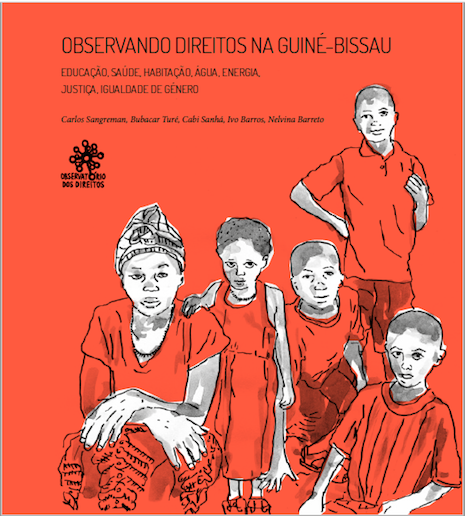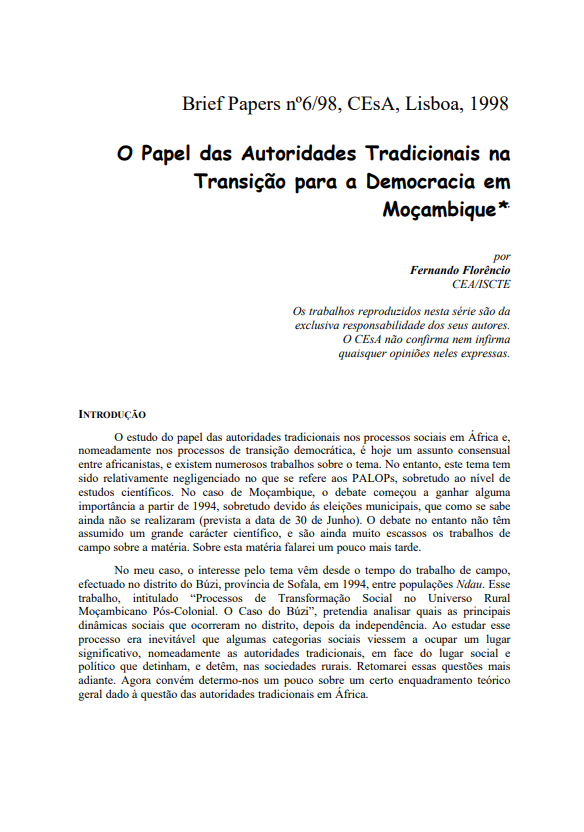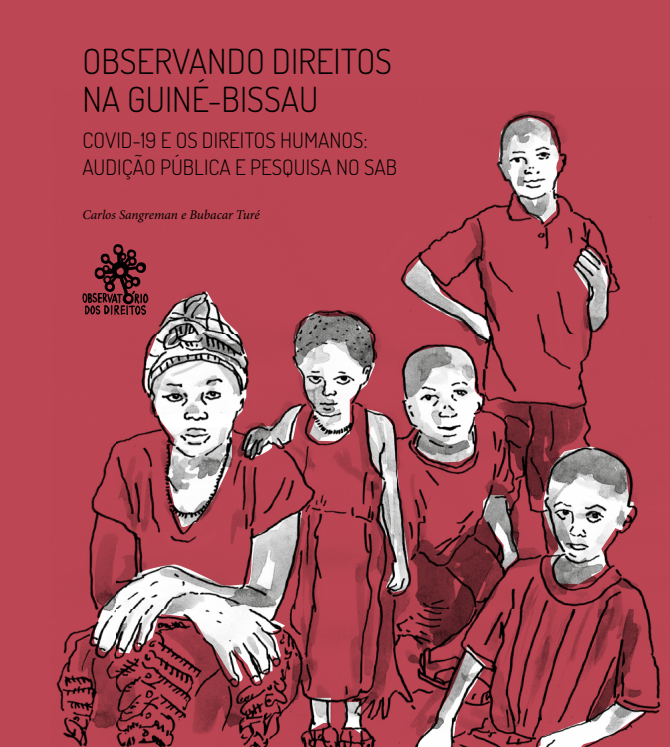PALOP

Observando direitos na Guiné-Bissau: educação, saúde, habitação, água, energia, justiça, igualdade de género
The Rights Observatory integrated in a structure such as Casa dos Direitos is an example of what civil society can do in fragile social contexts, but where power respects the Right to Opinion (even if at some times there is repression of media outlets such as radios and television and a climate of threat to critics of the situation at the time). The data collected on access to Economic and Social Human Rights, disseminated through books and exhibitions, in order to be used by activists and responsible authorities, has even been the basis for academic research at undergraduate, master’s and, this year, doctoral levels, especially in Portugal and Brazil.
Abstract:
The objective of Observando direitos na Guiné-Bissau: educação, saúde, habitação, água, energia, justiça, igualdade de género and the Observatório dos Direitos in 2019 was to continue the collection of data on access to Economic and Social Human Rights in Guinea-Bissau with data comparable to those of 2016, and to include two innovations: a new chapter on Women’s Rights or Equality of Gender and perform data collection also in the Bolama/ Bijagós region.
Quotation:
Sangreman, Carlos [et al.] (2020). Observando direitos na Guiné-Bissau : educação, saúde, habitação, água, energia, justiça, igualdade de género. Lisboa: ACEP, com LGDH e CEsA. URL: https://www.repository.utl.pt/handle/10400.5/20866
Access the article here.

Brief Paper 6/1998: O Papel das Autoridades Tradicionais na Transição para a Democracia em Moçambique
Abstract:
The study of the role of traditional authorities in social processes in Africa, namely in the processes of democratic transition, is today a consensual issue among Africanists, and there are numerous works on the subject. However, this theme has been relatively neglected in what concerns the PALOPs, especially at the level of scientific studies. In the case of Mozambique, the debate started to gain some importance as from 1994, mainly due to the municipal elections, which as we know have not yet taken place (scheduled for 30 June). However, the debate has not taken on a scientific character, and fieldwork on the subject is still very scarce. I will talk about this subject a little later. In my case, the interest in the theme comes from the time of fieldwork, carried out in Búzi District, Sofala Province, in 1994, among Ndau populations. This work, entitled “Processes of Social Transformation in the Rural Universe of Post-Colonial Mozambique. The Case of Búzi”, intended to analyse the main social dynamics that occurred in the district after independence. In studying this process it was inevitable that some social categories would come to occupy a significant place, namely the traditional authorities, in view of the social and political place they held, and hold, in rural societies. I will return to these issues later. It is now convenient to dwell for a moment on a certain general theoretical framework given to the question of traditional authorities in Africa. Communication presented at the CESA 1998 Seminar: A Problemática do Desenvolvimento – Historicidade e Contributos Actuais numa Óptica Transdiciplinar (The Problem of Development – History and Current Contributions from a Transdisciplinary Perspective), Conference O Papel das Autoridades Tradicionais na Transição para a Democracia em Moçambique (The Role of Traditional Authorities in the Transition to Democracy in Mozambique), 14th May 1998.
Quotation:
Florêncio, Fernando. 1998. “O papel das autoridades tradicionais na transição para a democracia em Moçambique”. Instituto Superior de Economia e Gestão – CEsA Brief papers nº 6-1998.

Observando direitos na Guiné-Bissau: Covid-19 e os direitos humanos: audição pública e pesquisa no SAB
Abstract:
Observando Direitos na Guiné-Bissau – Covid-19 e os Direitos Humanos: audição pública e pesquisa no SAB intends to investigate the human rights situation during the Covid-19 pandemic in Guiné-Bissau between January 2020 and January 2022. The framework is based on documentary research on human rights in sub-Saharan Africa from the production of international and specialized organizations, and other non-governmental human rights defenders of the same period. For Guiné-Bissau, in addition to equal research, the communiqués and official bulletins of the “Hight commissariat for Covid-19” were also collected with the information of infected, hospitalized, recovered, deaths and vaccinations, as well as interviews with the newspapers of the Commissioner and the Secretary. With the concentration of cases in the capital, Bissau, the research organize a survey of families, of market sellers and of companies on the effects of the pandemic and the measures enacted by the Government/Presidency to contain. A public hearing was also organized in the House of Rights, with various entities ranging from the High Commissariat to Unions, journalists, and public order police to information about how each institution through its situation and action in this period. As conclusions of the analyses of all these qualitative and quantitative data, it is possible to affirm that Guinea-Bissau’s fragility has such a weight in Guinean society that a disease that has killed fewer people in the country than malaria, diarrhea or tuberculosis has not overlapped with problems arising in poverty and low incomes in general. It affected Human Rights by showing that it was already knew about the enormous shortcomings of the health system, but the effects were more graves on economic and social rights by the abrupt stagnation of economic international activity, the cooperation project, unemployment, and the rise of poverty than directly by the pandemic and measures adopted. The human rights of first generation, more political, freedom of the press and demonstration were affected, with arbitrary arrests and violence practiced by unidentified individuals intensifying the climate of impunity and feeling that the regime is becoming increasingly repressive, but it cannot be said that they were effects directly arising from the pandemic.
Quotation:
Sangreman, C., Turé, B. (2022). Observando Direitos na Guiné-Bissau – Covid-19 e os Direitos Humanos: audição pública e pesquisa no SAB. pag.93. Lisboa: ACEP, com LGDH e CEsA. ISBN 978-9898625-27-4





